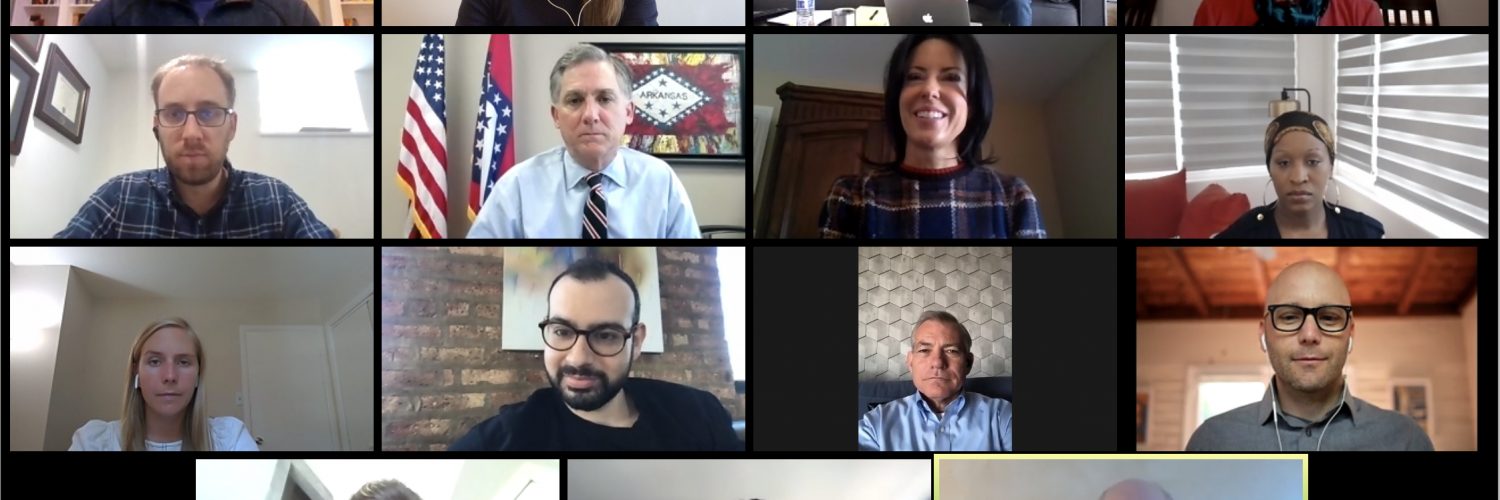Keeping entrepreneurship alive and thriving in the pandemic
Washington,
October 12, 2020
Keeping entrepreneurship alive and thriving in the pandemic
Chamber Business News 10/12/2020 To check the pulse of entrepreneurs across the nation during COVID-19, Arizona U.S. Representative David Schweikert and other members of Congress met with business owners from across the nation during a virtual roundtable last week. The lawmakers said they wanted to hear directly from business owners so they can better craft effective legislation going forward and find gaps where small businesses are falling through the cracks. Schweikert said small retailers and restaurants are showing some of the highest displacement numbers, and an “unusually high” number of new business filings indicates they are starting new businesses. Congress needs to find a way to help them succeed, he said. “This may be really important for the country’s economic recovery and those in the policymaking world are going to have to think about everything from access to capital, to the regulatory state, and how do we help microbusinesses that are going to be run from home for awhile,” Schweikert said. “How do you help them hit the launchpad and take off? That needs to be part of the economic recovery plan as we work through this.” Schweikert co-hosted the event with Rep. Bill Foster (IL) and Rep. French Hill (AR) who spoke of legislation to help, including possibly extending the federal Paycheck Protection Program that helped millions of small businesses keep their employees on the payroll, their lights on and rent paid for months during COVID-19 shutdowns. All three, once young entrepreneurs themselves, are co-chairs of the bipartisan House Entrepreneurship Caucus, which serves as a forum for lawmakers to stay abreast of the most pressing issues facing businesses. The event, the Entrepreneurship Roundtable, was hosted with the Center for American Entrepreneurship. The center is a nonpartisan research, policy, and advocacy organization that works with policymakers in Washington and across the country to achieve a policy environment that promotes new business formation, survival, and growth. Bumpy ride for all At the roundtable event, entrepreneurs from a range of industries including technology, real estate, digital food service, engineering, and marketing detailed the damage all experienced and what they need moving forward. All reported deep dives in revenues from the disruptions. All have also managed to keep their companies open. Federal stimulus programs helped, they said. “We might have survived without federal assistance, but it would have meant significant layoffs and downsizing. We did not lay off one person,” said Jimi Allen, CEO and founder of Bureau Gravity, a marketing and visual services company in Aurora, Colorado. Almost all of the executives said they benefited from two federal stimulus loan programs created earlier this year to help businesses with 500 or fewer employees: the Paycheck Protection Program (PPP) and the Economic Injury Disaster Loan (EIDL) program, they said. Remote workers here to stay? All of the companies said they have had to go to completely or partially remote operations. Lori Anna Harrison of Scottsdale real estate marketing firm DLP, said working remotely has been so successful for her company, they have no intention of switching back. “We will never go back to brick and mortar,” said Harrison. “It hasn’t impacted clients at all. We are able to give the same level of service.” Businesses owned by people of color being left behind Sky Kelley, the Black owner of Avisare, a Los Angeles company that uses artificial intelligence (AI) to help government agencies and small businesses procure contracts, said COVID-19 almost devastated her business. When the pandemic hit, Avisare was in the late stages of negotiating a major contract with their first private client. That deal instantly went away, she said. Other deals also fell through with government agencies that suddenly were financially strapped as well. Meanwhile, all of her highly skilled engineer employees, who were earning six figure incomes, had to move to independent contractor status. When Kelley applied for a PPP loan, she was turned down. After repeated phone calls and reapplying for an EIDL loan she finally received $68,000. Nevertheless, Avisare has survived by scrambling to find new business, she said. “We were able to ride through it, but we had to get really creative and do double duty while also managing kids and home and childcare.” Kelley also expressed concerns that businesses owned by people of color are falling by the wayside during the pandemic, especially companies owned by African Americans. Legislation to support entrepreneurship After hearing from the company heads, Schweikert and the other congressional members spoke of measures they and others are making to help spur innovation and prevent entrepreneurs from falling through the cracks. The New Business Preservation Act, for example, would provide funding for innovation and startups. The bill also has provisions to protect women and people of color. Schweikert said Congress is continuing to work to come to agreement on a stimulus package for small businesses. America’s edge relies on entrepreneurship, he said. “Small businesses have always been, and will continue to be, an integral part of our communities,” Schweikert said. |



